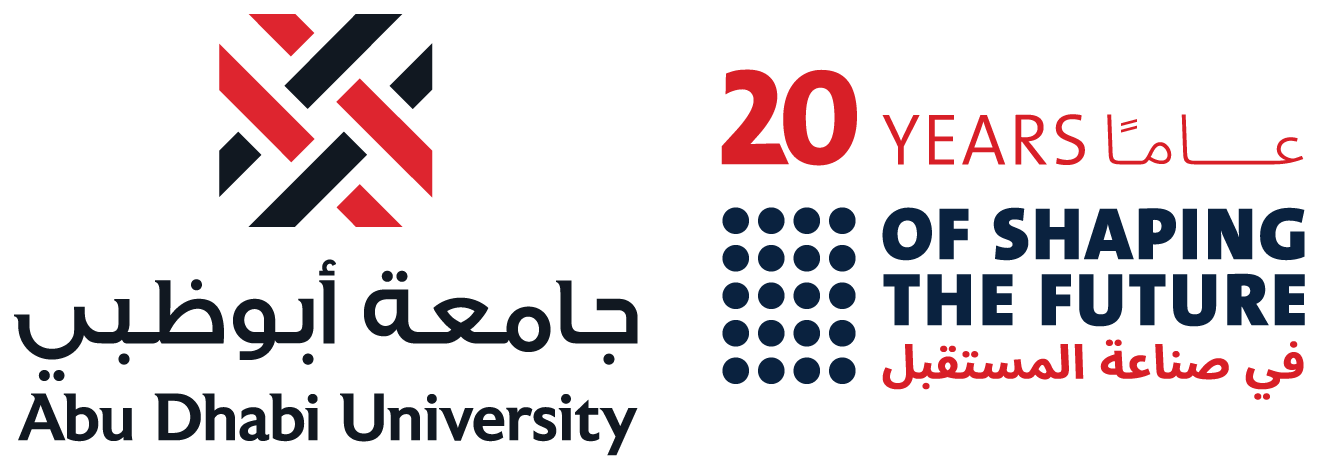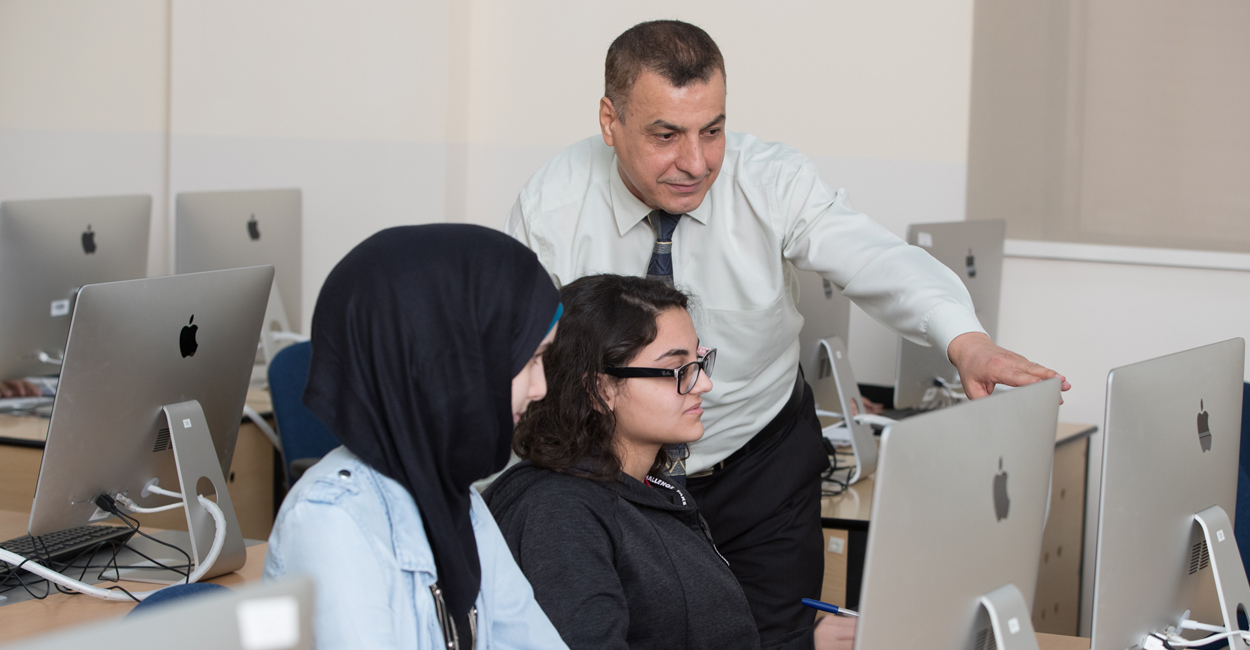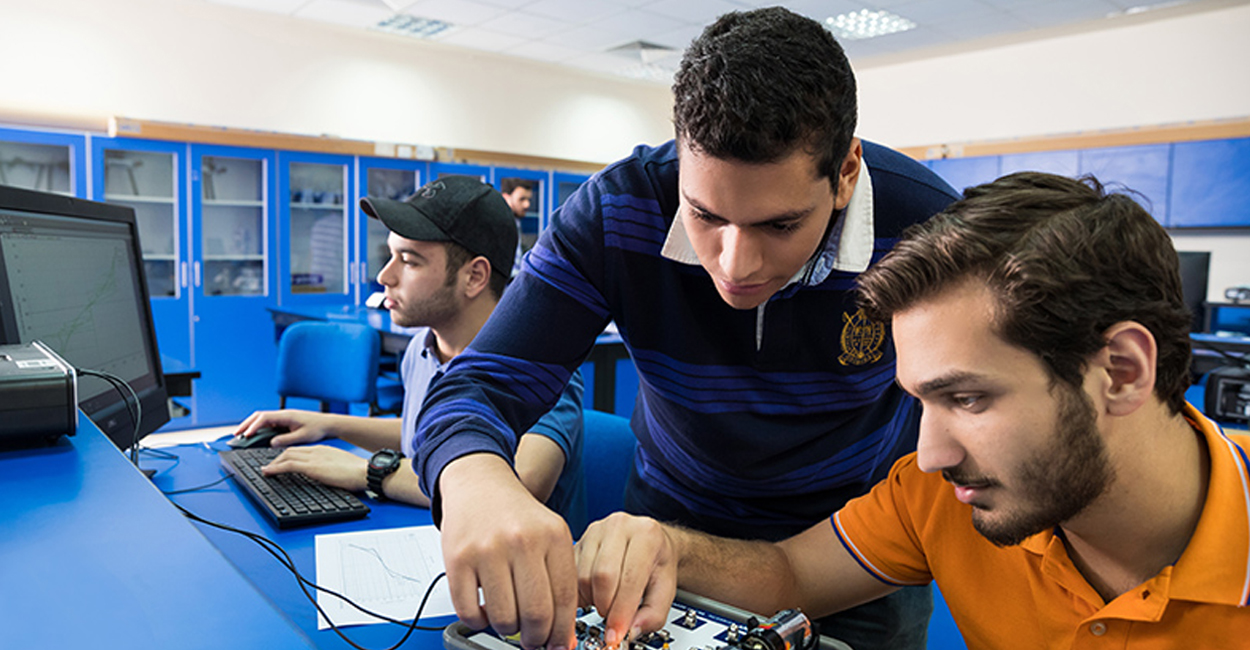The College of Engineering is a leading engineering college in the UAE.
It offers a range of engineering and technology programs at undergraduate and postgraduate level, with new and innovative programs being introduced on an ongoing basis.
The best choice for students across all Emirates
The Vision
To be internationally recognized for quality education, applied research, innovation and advancing regional development.
The best choice for students across all Emirates
The Mission
To produce highly qualified graduates and innovative applied research, meeting the development needs of the UAE, the region, and the international community.
About our College of Engineering
Abu Dhabi University
In 2017 we opened a brand-new, purpose-built academic building expansion and we are very proud of our extensive laboratory infrastructure - among the best in the UAE - which spans more than an entire floor of the College. Each discipline has its own specialized lab facilities and the recent addition of our mechanical engineering research lab and bio-imaging lab gives us the edge.
Joint research projects between our experienced faculty and their international peers guarantee you will be taught by a professional team of engineers up-to-date with the latest advancements in their fields. The annual publication of university rankings by Quacquarelli Symonds (QS) ranks our faculty third globally in the international faculty indicator.
Collaboration with industry and association with international professional engineering and architecture bodies such as the Institute of Electrical & Electronic Engineers (IEEE), American Society of Civil engineers (ASCE), American Society of Mechanical Engineers (ASME), American Institute of Chemical Engineers (AIChE) and the Royal Institute of British Architects (RIBA) ensure ADU’s College of Engineering remains at the cutting-edge of developments in the fast-changing field of engineering and technology. We pride ourselves on the agility of our curricula, responding quickly to technological advances, guaranteeing you will graduate with the skills and knowledge relevant to the needs of the market.
ABET is global accreditor of college and university programs in applied and natural science, computing, engineering, and engineering technology.
ABET accreditation assures that programs meet standards to produce graduates ready to enter critical technical fields that are leading the way in innovation and emerging technologies, and anticipating the welfare and safety needs of the public.
ABET accreditation facts:
- Accrediting institutions for over 80 years
- Currently accredits 3,709 programs at 752 colleges in 30 countries
- Approximately 85,000 students graduate from ABET-accredited programs each year
- Assurance that programs meet the quality standards of the related profession
- Ensures programs are leading the way in innovation and emerging technologies
- Assessment criteria developed by technical professionals
- Guarantees high quality learning in technical education
- Accreditation by a network of more than 2,200 experts from academia, government, and industry
- International quality standards, respected worldwide
The Royal Institute of British Architects (RIBA) is a global professional membership body driving excellence in architecture, founded for the advancement of architecture under its charter granted in 1837 and Supplemental Charter granted in 1971.
RIBA Validation is a peer review process that monitors compliance with internationally recognized minimum standards in architectural education and encourages excellence and diversity in student achievement.
College of Engineering
Disciplines
Chemical Engineering is the branch of engineering that deals with the conversion of raw materials to useful products and with energy by applying principles of science and engineering. It is concerned with the design, operation and maintenance of facilities which range from refineries, petrochemical and pharmaceutical plants to food and materials industries, and even nuclear-waste processing plants. Chemical Engineering is concerned with developing processes that are more efficient in terms of materials and energy usage, and which are environmentally friendly.
Chemical engineers have helped develop atomic science, polymers (plastics), paper, packaging, dyes, drugs, cosmetics, fertilizers, foods, textiles, water produced by desalination, and chemicals used in everyday life. They have plenty of job opportunities in the oil and gas industry, in petrochemicals industry, in food and drinking industry, water treatment and desalination plants, pharmaceutical and cosmetic industries, composite materials and polymers industry, inorganic materials processing plants such as aluminum plants, power generation and in renewable energy industry, nanotechnology, and many other industries.
The B.Sc. in Chemical Engineering program at Abu Dhabi University has been developed in response to the high demand for chemical engineers in the U.A.E. from the growing petrochemical, polymer, pharmaceutical, and food industries in the country, combined with the expansion in water desalination projects in the region. The program has been designed according to international standards. This ensures that graduates of the program will be uniquely qualified to design, analyze, and test wide-ranging solutions for state-of-the-art chemical engineering systems and processes. The program provides chemical engineering students with the opportunity to learn through a combination of theory and lab work. This mix of theory and laboratory work allows students to think things through and then apply their ideas in a variety of real life situations. Students also learn to diagnose problems and develop a variety of solutions. It is a challenging four-year curriculum that integrates courses in mathematics, chemistry, physics and chemical engineering to produce a professional engineer capable of designing and analyzing all aspects of modern chemical engineering systems.
The Master of Project Management (MPM) program at Abu Dhabi University is offered by the College of Engineering (CoE) in collaboration with Purdue University, West Lafayette, USA. The program accepted the first cohort of students in Spring 2013.
The program is designed to be in line with the Project Management Body of Knowledge (PMBOK) developed by the Project Management Institute (PMI: www.pmi.org). This prepares the students to take the exam of Project Management Professional (PMP) certification offered by the PMI and makes the program more attractive to professionals and engineers who plan to become certified Project Managers.
The Master of Engineering Management (MEM) program at Abu Dhabi University is offered by the College of Engineering (CoE) in collaboration with the College of Business(COB) and Purdue University Calumet. The program accepted the first cohort of students in Spring 2010. The program consists of 10 courses (30 credit hours), of which are engineering courses and 4 are business courses. The students could also do a thesis in lieu of 2 elective courses. The program accepts students with a Bachelor’s degree in engineering, computer science or IT.

